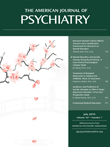D2 Receptor Genetic Variation and Clinical Response to Antipsychotic Drug Treatment: A Meta-Analysis
Abstract
Objective
Several lines of evidence suggest that antipsychotic drug efficacy is mediated by dopamine type 2 (D2) receptor blockade. Therefore, it seems plausible that variation in the DRD2 gene is associated with clinical response to antipsychotic drug treatment. The authors conducted the first meta-analysis to examine the relationship between DRD2 polymorphisms and antipsychotic drug response.
Method
A MEDLINE search of articles available up to December 31, 2008, yielded 18 prospective studies examining DRD2 gene variation and antipsychotic response in schizophrenia patients; of which, 10 independent studies met criteria for inclusion. Clinical response to antipsychotic treatment was defined as a 50% reduction of either the Brief Psychiatric Rating Scale total score or Positive and Negative Syndrome Scale total score at approximately 8 weeks of follow-up evaluation. Odds ratio was the primary effect-size measure and computed for each polymorphism in each study. Sufficient data were available for two DRD2 polymorphisms: –141C Ins/Del and Taq1A.
Results
Six studies reported results for the –141C Ins/Del polymorphism (total sample size: N=687). The Del allele carrier was significantly associated with poorer antipsychotic drug response relative to the Ins/Ins genotype. Eight studies assessed the Taq1A polymorphism and antipsychotic response (total sample size: N=748). There was no significant difference in the response rate among A1 allele carriers relative to individuals with the A2/A2 genotype or A2 allele carriers relative to individuals with the A1/A1 genotype.
Conclusions
The DRD2 genetic variation is associated with clinical response to antipsychotic drug treatment. These data may provide proof-of-principle for pharmacogenetic studies in schizophrenia.



